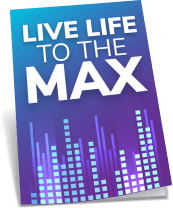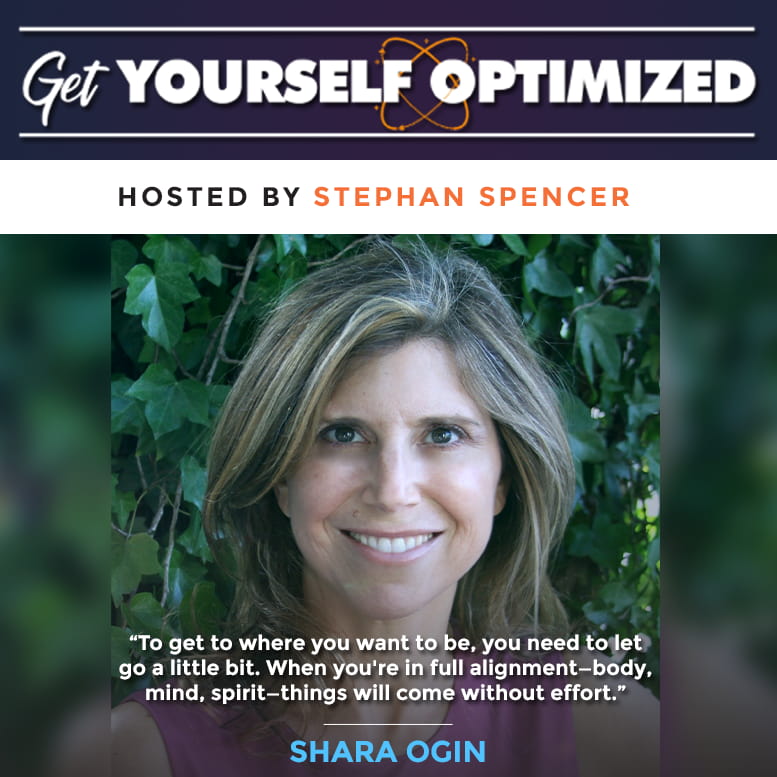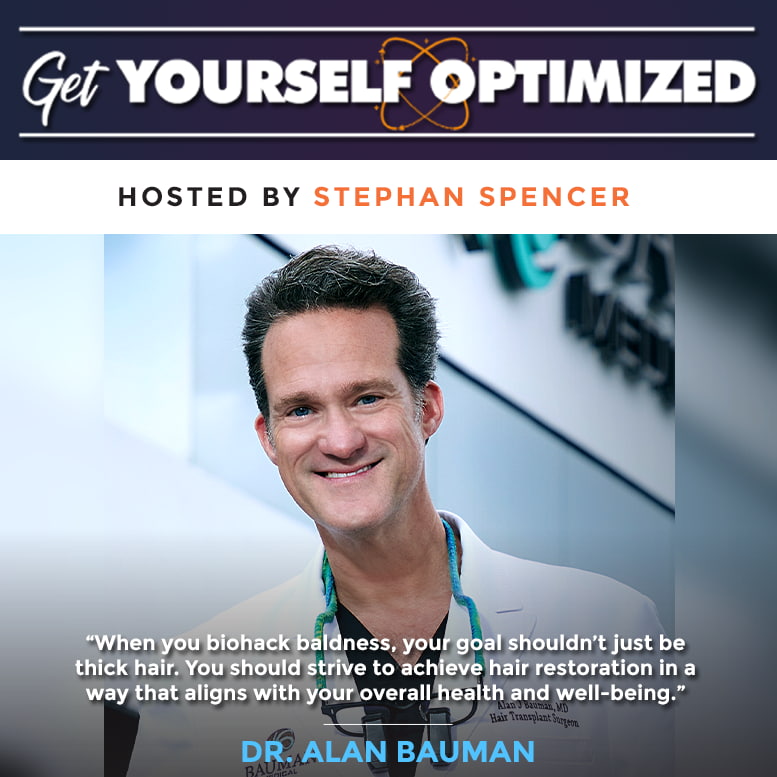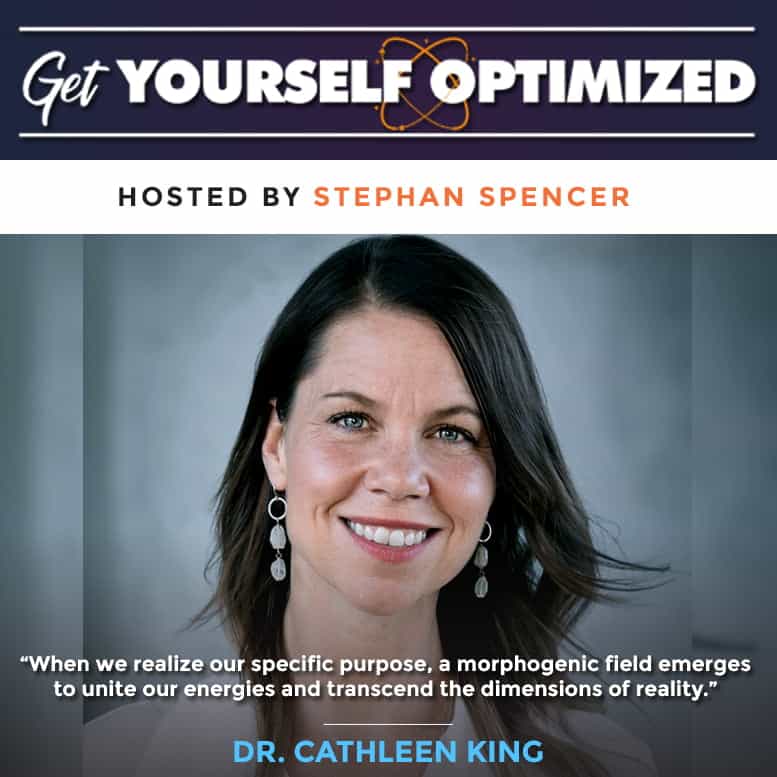In this Episode
- [00:30]Stephan introduces Barry Goldstein. He has mastered using music for healing. He’s a Grammy award winner and producer, with music used by doctors for therapy. In addition, he’s the author of The Secret Language of the Heart, a groundbreaking book on research and experiential processes.
- [06:12]Barry talks about the important aspect of becoming the DJ of your life.
- [13:13]Stephan and Barry discuss music as a healing modality.
- [19:03]What is Shamanic Drummings, and why can it help in healing?
- [27:03]What is the difference between brain entrainment and heart entrainment?
- [31:33]Barry and Stephan talk about the impact of intent in making music.
- [40:48]Barry tells us the key to making music is becoming your own explorer and creating change for you and others.
- [44:48]Stephan requests Barry to play some music that might help us be in a higher vibration and more intentional brain state.
- [52:51]Stephan and Barry talk about the benefits of connecting with your intuition and trusting your guides.
- [58:36]Check out Barry Goldstein’s website at barrygoldstein.com or follow him on social media to learn more about him.
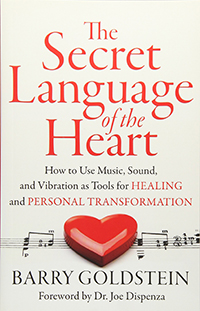
Barry, it’s so great to have you with us.
Thanks for having me, Stephan. I’m really excited to be here with you. I’m looking forward to the conversation.
Me too. We’ve been talking about doing this for a while now, and lo and behold, we’ve finally put it together.
I’d love to start off with an understanding for our listeners or viewers of the difference between music for entertainment, music for (let’s say) productivity or flow, and music for healing.
That should take up the full hour. I think you should start with music for art and entertainment. It is something that we’re basically just using for enjoyment on its own. Very often, those are random experiences where the music is happening to us.
For example, you hear a song on the radio. Oh, I love that song. That’s music for art and entertainment. You’re listening to music within a film, TV, or any of the above where it becomes used for productivity and flow. It’s where we begin to use it beyond that and we begin to navigate it ourselves as a tool for energetic management.
I call this becoming the DJ of your life because just as a DJ programs different music for different parts of an event, that’s how you can program your life as well.
The DJ, when you come into a wedding, is very often very calm music to allow us to socialize. It’s played at a certain level. It’s creating a comfort level. It’s soft.
Then, you go into starting the reception. They might add a piece, a saxophone player, or a bass player with that. They’re kind of amping the music up. They allow you to get used to it first. Now, they’re using it to bring you into a new place.
Then, there’s the dance with the father and the daughter which is geared towards opening the heart and allowing us to connect to our emotions.
At the end where it’s amped up even more and we’re dancing, moving, and having a great time, that was all pre thought-out by the DJ. If you would have started out with really uptempo, loud music, people might find that invasive. If they would have started out with a very emotional piece, people might not feel comfortable with that because they didn’t really get to know each other.
I call this becoming the DJ of your life. Just as a DJ programs music, you can program your life as well.
It’s the same thing in our lives. We can plug in music at specific times of our day to navigate our emotions, to increase that productivity, to increase focus, to bring us to more relaxed states, and for sleeping challenges.
Then, for healing, that’s another whole area. Feel free to jump in with me on this because I know you have thoughts on this as well.
Let me first point out that in what you described with the DJ, he or she was taking the attendees and the audience on a pre-planned, pre-prepared journey. He or she also—if they’re good—is calibrating to the emotions of the audience and to whatever is going on in the environment.
If they need to amp it up because there’s a lot of distracting, loud construction noise or whatever in the background that they need to drown out, then they’ll do that. If they need to make an improvisational musical background for somebody who’s giving a very emotional speech, then they can just swoop in and do that. I think that’s important to consider that you’re the DJ for your own life and you can do that on your own day. You can calibrate and take yourself on that journey.
I’m sure we’ll dive deeper into that as well, but it really starts with asking the right questions. If you start from the premise of asking yourself, where am I now emotionally, where do I want to go, and then what piece of music within my catalogue of music—your own inventory as well—will take you to that place. It’s all about utilizing music as a bridge. That’s really the important aspect of the take home of becoming the DJ of your life. You have the ability to up it a notch. No matter where you are, you can always take it up another level or enhance it in some way.
It’s all about utilizing music as a bridge.
Not just your productivity, but also—as we’ll discuss in a minute—your healing and other kinds of modalities that have to do with metaphysics and your higher self.
They all affect each other. How much you sleep at night—which you wouldn’t consider a focused state—affects how attentive you are the next day. How you deal with your stress responses when stress comes into your life affects your productivity.
If you can (again) navigate those when stress is coming in and say, wow, I’m really operating at a place I don’t want to be in right now. What can I do? What can I shift in five minutes? That’s why music is so powerful because it does it faster, more effectively, and more powerfully with low costs. It’s non-invasive more than anything I know. Obviously, I’m a little bit biased because I’m a musician, but I’ve seen it in action.
Now on the flip side, you could have your sleep ruined by some earworm that just does not get out of your head for hours and hours on end. I had a Britney Spears song just playing. Not that I dislike her music. I actually really do like her music—she’s very talented—but that particular song just would not stop looping in my head. I tried to go to sleep for hours. Eventually, I fell asleep, but it was still going through my mind as I was falling asleep. Don’t start singing Baby Shark because that’ll be in my head for the rest of the day.
Yeah. I won’t be mean to you. But that’s a good point. All music is not created equal for the same purpose. That’s why in my book, I discussed a protocol for going asleep at night. Exactly what you just said, you don’t want to listen to music with lyrics because what that does is it gets you to a point where you’re analyzing it in a different way than moving into a relaxed state.
Usually, my suggestion for people who are utilizing music to sleep at night—and study supports this as well, Stephan—that music at about 60 beats per minute works really well. Why is that? Because 60 beats per minute targets your heart at a relaxed state. Your heart at a relaxed state is between 60–70 beats per minute.
We all have different definitions of healing. So I look at it not just the physical body, but I'm looking at four pieces of a pie: physical, mental, emotional, and spiritual. Click To TweetWe have the ability to entrain to music. Entrainment is when an internal rhythm, which in this case is our heart rate—it’s just like a metronome that keeps time in our body—has the ability to adapt or synchronize to an external rhythm, which in this case is music. So just having music on at that tempo.
If you put it on about an hour before bedtime, you start to breathe differently. Your breathing starts to kind of adapt to that ebb and flow. You slow down and you move towards what is called the parasympathetic state. This is a perfect bridge to go to sleep at night because you’re actually moving your heart into more smooth and orderly rhythms which we call heart coherence.
As your heart’s moving into more coherent states—we’re finding out now through research as well—your brainwave patterns also slow down to more conducive states to bridge to sleep. Normally, we’re in high beta brain wave patterns on a normal thinking day. That’s when you’re focused and attentive. You also might be dealing with stresses and challenges that come into your life. When you’re sleeping, you’re in the delta, so a lot of us go from one to the other.
You’re listening to that Britney Spears song before bed, you’re up, you’re on Facebook or Instagram, or you’re writing your newsletter, and your brain is still going. If you utilize music in that way where you’re bringing your heart to relaxed rhythms and your brain waves are now moving into alpha brain wave patterns, you’re going to go to sleep faster and stay asleep longer because you’re using (again) music as a bridge to move to those coherent heart and brain wave states. They found that if you do this over a period of time, it goes onward. In other words, there’s just not that day. It has enhanced effects months ahead of time if you keep doing that.
That’s awesome. I’m going to try some music-listening to help with my sleep.
I’ll send you a great piece for that. I have a piece called Ambiliology 6: Genesis.
We can entrain to music.
That sounds cool. I already like it.
Yeah. I’ll send it to you. Actually, that’s how I met my wife, Dr. Donese Worden. She was using my music to help her patients with insomnia. I always tell people as a joke—but it’s not that funny anymore—when I started doing music, if you would have told me that I would be putting people to sleep every night, I would have considered that very insulting because I was a rock musician. Still, I’m a pop producer as well.
Now, with 75 million people alone in our country diagnosed with insomnia—and that’s climbing more—it’s actually a privilege to be able to help people in whatever way we can with getting to sleep and moving into more relaxed states.
You’re helping heal the planet.
It starts with us. It starts with each of us.
There are no coincidences. Coincidentally, your wife’s episode on the show just went live today as we’re recording this. That was a fabulous episode. Really, really inspiring and helpful to our listeners.
I’m sure she’s a wealth of information and really does a great job at bridging conventional and alternative medicine.
She does. And spirituality, too. It’s beautiful.
Absolutely. I didn’t want to negate your third part of that question, so if you want to come back to it.
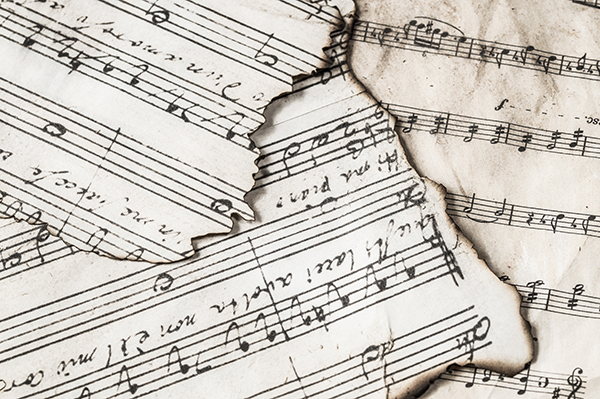
Let’s circle back now to that. I will mention before we do that that Will Henshall was a guest on this podcast a while back. He’s the creator of Focus@Will. We talked a lot about streamlined music that doesn’t have lyrics to get alpha brain waves into a flow state so that you can get five times as much work done in the same period of time. If that interests you, listener, definitely check out that Will Henshall episode.
Let’s talk about the whole side of music as a healing modality.
I would love to. For me, it starts with really identifying and defining healing because it’s really not the same for all of us. We all have different definitions of what that may be. When I’m looking at healing or talking about healing, I look at not just the physical body, but I’m looking at four pieces of a pie which are physical, mental, emotional, and spiritual.
For instance, if you listen to a song that reminds you of your mom who passed away and all of a sudden you realize when you’re listening to that song, you start to cry and you begin to release grief that’s been held in your body that you didn’t even know about on a subconscious level, what’s happening is you’re releasing a block of some kind. Would you agree with that?
Yes, for sure.
I like to simplify things. For me, that’s where healing starts. That’s how I define healing. Anytime you can release a block of some kind, either in the physical, mental, emotional, or spiritual bodies, then a healing has occurred.
I like to simplify things. For me, that’s where healing starts.
If we look at it that way, then most of us have had a healing occur when we’ve listened to music, sound, or vibrations of some kind because we’re releasing blocks. That might happen in a mental area, too, just like you read a book. You can have an aha moment and it changes the way you think about something. You’re like, oh my God, I can’t believe I’ve been thinking this way for my whole life. Then, you read something and go, wow, that just completely changed everything I know to be true.
That can happen in a song, in a very powerful lyric, or even in chanting. When we’re chanting a mantra, you can have this aha moment and release something as well. That is where music can become actually healing beyond even just transformational where we can find objective findings. Subjective is when we give you an emotional this-is-how-it-affected-me. This is how I felt emotionally with it. It’s subjective. But there are also lots of new research that is objective such as studies now that excite me for chanting. This is where ancient and modern science and spirituality bridge together. That’s where we are at an exciting part of our consciousness now.
For instance, a study that was done on the chanting of ‘Om,’ which, in Sanskrit, has been done for thousands of years. The world was said to have been created through the sound of Om, and every sound is said to have been contained in that—past, present, and future. They also used that as a way to manage prana or energy, by chanting Oms. So when we’re talking about becoming the DJ and navigating energy through music, that’s been done through thousands of years through chanting.
But the study showed—this is an fMRI study—that when the control group chanted, nothing happened in the brain that was shown to be beneficial. In other words, the areas of the brain that were geared towards what we were looking at in the Om were not activated. But when the experimental group chanted Om, the fMRI studies showed that it created what’s called limbic deactivation.
Putting this in simple terms, when that system is deactivated, we move into a more peaceful state. A calmer, more serene state. That is what we’ve known for thousands of years. That’s what most of us have experienced while chanting Om, that we are moving to a more peaceful state. We move out of our mind chatter because when you do a repetitive chant, it doesn’t leave a lot of room in your head to chant negative thoughts that are going on in our story.
This is the exciting part. As I said, I’ve been able to present this in medical conferences to doctors and watch them stand up and do a chant that I created called Om-Shalom-Home. We’re moving to a new place where all of these ancient teachings and techniques are now being applied to enhance objective findings in our physical, mental, emotional, and spiritual well-being.
That is so cool. Shamanic drumming is something that can be quite healing, too. What is the reasoning for that?
I’m glad you brought that up because there are lots of new things with that as well. Originally, the drum was used as a form of communication. It’s thought that it replaced this for communicating like this, that it’s easier to pick up, bang something, and communicate that way. It was a form of communication also between villages as well, so if you were going to war, you bang the drum. It was used in rituals and rites of passage. The drum was used in ways as a ritual. That’s really the essence of shamanism, to create a movement of energy through ritual.
How are you utilizing that now in modern times? In drumming circles, there are some great studies. One of them is through Remo. Remo is a company that creates drums and drum heads. They did a lot of studies that were geared towards drumming in corporate America. They were able to show that people move to more relaxed states, less anxiety, and less depression when they were doing group drumming sessions.
In addition to that, some newer studies show that when we’re drumming in conjunction together, our heart rates can actually move into group synchrony. Not only can we move into coherence in our own hearts singularly, but that the patterns link us together in synchrony.
So when you talk about changing the world through music, sound, and vibration, that’s the beginning of it because we’re all coming home to (I feel) a calling when we’re drumming, that we’re coming back home to our internal heartbeat. That’s the spiritual connection that I feel when the call to be in drumming circles and to together create that community and that bond because we all have an internal drum. When we’re doing that together, we’re synchronizing. It brings us together in community.
When we’re drumming in conjunction together, our heart rates can move into group synchrony.
They’re also showing PTSD veterans that literally, in a 40-minute soft drumming session, they were able to double the amount of alpha brain waves. That’s the more relaxed, attentive state. Also, it’s a bridge to our creative states as well. If you want to start your journey with sound and vibration, the drum is just a great way to do that.
I remember there’s a quote that goes; “we’re all just on our way home” or something like that. Do you know which quote I’m talking about? I think it might be Wayne Dyer. We’re all just trying to find our way home or whatever. It’s something along those lines.
I found that really beautiful, this experience that we’re having of life. Another Wayne Dyer quote is, “We’re not human beings having a spiritual experience. We’re spiritual beings having a human experience.” If we’re on our way home—our home is in the heavens and in the non-physical—then what we’re doing now is finding our way home.
While we’re here in physical form, I think of our home and our physical body as being our heart. We’ve heard that many times.
You’re saying the higher heart, the energy center, the chakra, and not the beating heart physically?
We’re seeing more and more that it’s both. The Institute of HeartMath has done studies that are geared towards the physical heart, but when we’re talking about the heart, we’re talking about our emotions as well. What they showed was that when you move into an elevated emotion such as kindness, compassion, and gratitude, when you’re in these states, your heart and your heart rate are beating in smoother and more orderly patterns.
While we’re here in physical form, I think of our home and our physical body as being our heart.
Connecting with that heart, chakra so to speak—the ancient connection with that modern—is connecting with science who are showing that that affects our physical heart and also our heart rate variability. For a lot of people who watch your show who are corporate-based, this is going to be of interest to them. If they can stay in those more positive emotions and more creative states, and stay away from the anger and the frustration where your heart is in incoherent rhythms, that it’s not beating smoothly and steadily as it does when you’re in gratitude, compassion, your creative state, that your heart rate variability improves when you’re in those states of compassion, kindness, and creativity.
Improving your heart rate variability is a marker for your overall health, so that’s going to improve productivity. But in addition to that, it’s also your resiliency. Your heart rate variability is a measurement of how you deal with stress, how adaptive you are to that when stress comes into your day or a challenge comes into your day, and how you deal with that. The more you’re in those beneficial states, then when those challenges come in, you deal with them in a different way because you’re more centered.
My understanding of HRV (heart rate variability) is that the more you have the variability, the longer you’ll live and the healthier your heart and your overall physiology because your heart is not supposed to work as hard when you’re breathing out versus when you’re breathing in, that you’re processing the oxygen that you’re intaking. Your heart is having to work harder to do that when you’re breathing out. It’s the carbon dioxide. The byproduct is leaving. That is less taxing on the heart, so it can take it easier.
If it’s working the same for the in-breath and the out-breath, that doesn’t bode well for your longevity. That’s my understanding of it. Maybe I’m incorrect in some fashion, but that’s my understanding.
The key is that it is a prime marker for our overall optimal health and that it’s not just affected by the physical aspects of it. Again, it’s coming back to those four body systems—physical, mental, emotional, and spiritual.
Improving your heart rate variability is a marker for your overall health, which will improve productivity.
If you have a mental story going on in your brain and that is creating stress in your body, it’s not just a mental thought going on. There are other things that are happening in your body now because of that. You’re producing stress hormones. Your heart rate is changing. There are things that are going on that affect the physical.
That’s the relationship when we’re talking about the physical heart, the energy center of the heart, or the chakra. That’s where (again) the spiritual and the physical bodies intertwine. They’re all related.
Where does binaural beats and hitting certain frequencies, certain numbers of hertz, and so forth fit into the picture here?
It is an ongoing research in terms of that, but we do know that binaural beats, for example, are when you introduce two different frequencies—one in one ear and one in the other—what happens is the brain creates the mean, the balance of those.
If I give you a frequency of 200 in your left ear and 210 in your right ear, then the mathematical difference of that is 10 hertz. We can adapt, that’s called brainwave entrainment. Heart entrainment is when we’re synchronizing two beats per minute. Brain entrainment is cycles per second or hertz. We can entrain the brain to that targeted frequency. Say that 10 hertz area would be targeting alpha. The brain can adapt to those frequencies and entrain to them. We can also utilize music as a delivery system to do that. For me, that is kind of like a spoonful of sugar that helps the medicine go down.
If you’re just listening to binaural beats, it might not be that pleasant for you. But when you’re utilizing within music, and it gets a little bit more complex because you want to make sure it’s harmonically aligned with the frequencies in the music as well so that you’re not creating dissonance with those binaural beats. I think it’s more than just the technology. It’s a musical recipe that creates a healing experience.
I think it’s more than just the technology. It’s a musical recipe that creates a healing experience.
It could be the technology of the binaural beats, but if the composition of sound is like your nails on a chalkboard to you, then the technology is probably not going to work for you because you’re not going to move to a relaxed state.
I’ll take it even beyond that and say that it’s also important. The intention of the composer also goes into the music and is felt. The emotion of the person who’s in the room at the time, even that energy can be incorporated into the music on subtle levels.
For instance, if I have an engineer in the room and he’s disagreeing with me on something, and in that state of disagreement it takes me out of my space of just being with the music. Say he stopped me and said, “Wow, can I just stop you for one minute?” Now, my creative flow is gone and I’m stressed.
Do you think that the next chord I hit is going to be the same as what I was playing? Unless I come back to center and get myself there again? Is it possible that you would feel that in the music? Like maybe I hit a note at too hard a velocity that takes you out of your meditative state when you’re listening to it.
I believe everything is suddenly recorded. That is why I also think that it’s more complex than the conversation that’s going on, not just in the scientific world, but also the spiritual and metaphysical community as well. This is the B part of your question when we’re talking about specific frequencies that are geared towards specific things.
I want to just jump in here and say that from a physical, scientific standpoint, what you’re saying of the intent and the vibration that you’re in emotionally is reflected in the music, even very subtly. I’d say also that on a spiritual level, that is also passed on too. Even if the music sounds exactly the same by scientific analysis, it is no different. I do believe that the intent matters.
We can entrain to music. Entrainment is when an internal rhythm, our heart rate, can adapt or synchronize to an external rhythm, which is music. Click To TweetThat’s a spiritual, universal law really. That it’s not just about the outward appearance, it’s about the intent of the person. Somebody with a malevolent intent appears to be doing all this good in the world. They’ve created this nonprofit that’s saving people’s lives and so forth, but they’re doing it with malevolent intent. That is spreading negative energy and that is creating a negative impact ultimately for that person and for others, so I think intent is everything, really.
Let’s talk a little bit more about that. I love that you brought that up because even for people who don’t want to use the term, that’s a spiritual fact or on a spiritual basis for those people who are not aware of that.
I break it down to two things, Stephan. It comes down to making you feel expansive. When you listen to it, you feel like you’re standing on top of a mountain with your arms open. You feel, oh my God, you’re in front of the ocean or whatever that place is for you. When something doesn’t feel good for you—this is each individual—that’s why I’m saying check in with a piece of music because just like a nonprofit that people recommended to you, something doesn’t feel right, people can recommend a piece of music or a specific frequency for you and it might not feel right for you for whatever reason.
A contracted state is when you feel you don’t feel safe and something about that energy makes you feel like you need to protect yourself, like on a cold day when you go in or you’re just trying to get warm. When you learn to listen to a piece of music, just ask yourself, does this make me feel contracted or does this make me feel expansive? Then, you can be the judge of what works for you and what doesn’t work for you.
I call this musical nourishment. We’re nourishing ourselves with music just like we nourish ourselves with meals. We create a nourishment program for ourselves when we’re going on specific diets for specific things, but just like those diets, you have to check in with yourself.

I read an article or a study that shows that broccoli can really help in battling cancer and it’s doing amazing things in lots of capacities, but I take a test—that’s what we’re doing here, we’re taking a test—and broccoli creates inflammation in my body for me.
It’s the same thing. Individualized medicine, individualized music is the most powerful way we can go, which leads into your other question about frequencies. Are there specific frequencies or tunings that are more beneficial than others? Again, the research is becoming more and more. We’re studying it more. For instance, at 432 hertz versus 440 hertz.
But again, as a composer, I think it’s oversimplified. If you look at my keyboard, there are 88 notes on that specific keyboard. When we’re talking about a tuning, say 432, we’re not talking about one note. We’re talking about 88 different notes within that tuning of how we tune our keyboard.
Singing 432, the frequency is beneficial. You would just be hitting that frequency of 432. Singing that creates more benefits than hitting the note of 440, but when you get into full compositions, every one of these keys, Stephan, is a frequency. I have 88 different frequencies on there and the combinations of all of those with the intent and the harmonics.
I always ask myself a question, do I think one tuning would be beneficial to that? My answer, always to myself, is I have to listen independently to every composition to see whether it makes me feel more expansive, more non-expansive, or more contracted. Because if you think about all of the music that you’ve heard in your lifetime that was at 440 and all the beautiful healings you’ve probably had either in physical, mental, emotional, how would you explain that if 440 was generating what many of the urban legends? You can read into a lot of what it says it’s perpetuating and how it was generated.
In general, humans want to find a panacea for things. We want to find something that’s going to work blanketly. The bigger picture for me is we have to work on many different levels. We have to do our mental, emotional, and spiritual work and cannot just expect the technology to just blanketly heal our inner work that needs to be done.
We can plug in music at specific times of our day to navigate our emotions, increase productivity and focus, and bring us to more relaxed states. Click To TweetIt’s kind of a long question because it’s both. Yes, you can listen to a piece of music at 432 and you can have an amazingly healing experience with it. And you can also listen to another piece of music 432 and not have one. It’s not a blanket statement. The same thing with 528 hertz. People are calling that the love frequency. If you listen to a piece of music that was composed at a 440 and then tuned to 528, let’s say it had a very negative message in it, let’s say it was just a dark energy in there, if that person’s intent was to embed that with that negative energy, do you think—this is a great conversation—that it would change and shift the energy just by changing the tuning of it?
I don’t think so. But I think anything can be transmuted. If you ascend it up to the heavens for transmutation, you can take a negative thought, a negative intent, or whatever, and turn it into something positive by sending it up for transmutation.
But it does come back also to the individual work that that person put into that song. That on whatever level they were at, when they put that energy into the work, part of it that needs to be cleared is from them themselves. Each one of us needs to do our inner work as well, and eventually, we’re all coming back to (hopefully) the same space or the same vibration over. We don’t know. At many different beliefs, is it one lifetime? Is it more than that? Whatever it is, you would hope that we come back to the source of pure energy at some point in our spiritual evolution.
I have to say that I did not know whether we had multiple lives or if we had just one shot at it. At one point, I wasn’t even spiritual. I was agnostic up until age 42, so this is all a learning journey for me.
I know for me personally, without a doubt, that reincarnation is very real. I’m not looking to convince anybody. I just know what’s true now. I can relax into that and not have to be fearful of death anymore because I’m much more connected now that I see how things work, how it’s always working out for us, and the balancing of everything—of our energies, of our karma, and across lifetimes. It’s really quite beautiful.
And I have said this to you before. It is so beautiful when you see someone coming to their own knowings, whatever that is. I’ve had a few conversations with you and it’s just beautiful to see. I said, your life hasn’t really changed that much—I don’t know if you remember me saying that to you—because your SEO is still search engine optimization for you.
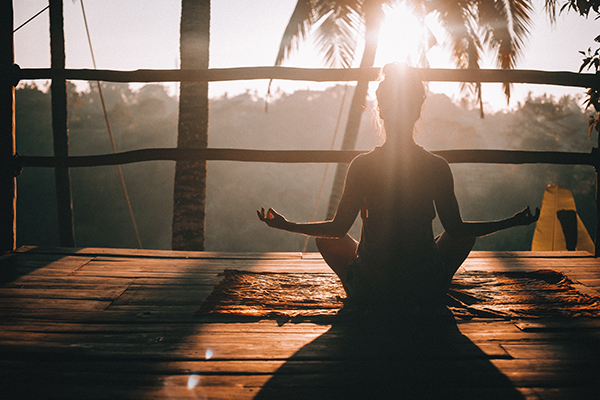
You’re just right. It just has taken on another meaning with that as well. I think we’re all seekers. It’s all about the question that we’re asking, just as much as it is the answer that we’re receiving back. That’s part of it as well.
I’ve heard that the quality of your questions are way more important than the quality of your answers, so I ask better questions. That’s a great bit of advice.
That goes back to the different frequencies and using different frequencies. I say, try all of them because, as an artist, I play around. I’ve composed in A440. I’ve composed in A444. I’ve composed in A432. I’ve done things in between where I’m composing to the right frequencies to try different things.
I think the key is to become your explorer, become your own sound healer, and just continue asking questions to see what resonates with you. How you can incorporate that is another thing of how you can plug this into your life so that it’s creating change. I think that we acquire a lot of knowledge in our lives, but it’s the implementation itself that creates the transformation.
Knowing is great and acquiring knowledge is wonderful, but when you can actually implement it and start plugging these things in. Chant for five minutes in your day. Pick up a drum when you’re feeling stagnant. Or, just go through your inventory of songs and start identifying them and putting them in categories of emotions so that when you want to move into gratitude, you have a playlist for it. When you are in a state of depression, you have a playlist to get out of that. That’s when music really becomes powerful, when you could plug it into a daily program.
Speaking of daily programs, there are some really beautiful, amazing meditations that you have collaborated with Dr. Joe Dispenza on to create notes, part of a lot of people’s daily routines. When they’ll go (for example) on a walking meditation, they will listen to the meditation that you and Joe have created together. You have a whole series of them. Can you give us some more detail on these?
I’ve been privileged to work with Dr. Joe for over seven years now. It’s wonderful because it’s a back-and-forth of fine-tuning, looking at what state we want to take people to, and then creating the sonic landscape on my end to achieve that.
Being able to see people transform is amazing.
Being able to see people transform on things like the walking meditations, going through a breathing process, and watching people freeing up energy that they were holding for a long time has been amazing. In retreats, we were doing live meditations where we were doing them on the spot in front of audiences of 1500 or 2000 people. I’m composing live and Dr. Joe is literally like the conductor as well and checks the energy of the audience.
We’re going through the ups and downs together of creating a piece of music that brings coherence to the room. In a sense, everyone’s energy that’s in that room is part of the composition that’s going on in the room, which is very cool and very unique.
That was a life-changing experience for me, just being able to do that live and seeing how energy in a room can shift in a very little amount of time. Given the right frequencies, given the right intention, given the right emotions, there’s so much that can occur that could be of benefit to people.
Very cool. Can we maybe do a little improv here and come up with some music on the fly that might help our listener to get into coherence or into a higher, more intentional brain state, more high vibration, more spiritual, more connected, more grateful, more intentional?
Let’s all just put that in a big pot, all those beautiful words you just said. Since it’s you and I in this conversation right now, what I would like us all to visualize, as well as the audience listening with us, is that we are all tuning in from different places around the world and that those intentions are in the core of their circle.
If you visualize that, we’re all holding hands together around the globe and those intentions are in the center of it. While I’m playing and tapping into those intentions of sending it to me as I’m playing, I’ll receive it and I will send it back out to anyone who’s tuning into that.
I have no idea while I’ll be playing. I’ll just be tapping into that.
All right, let’s do it. That sounds great.
If you have a mental story in your brain that creates stress in your body, it's not just a thought. Other things are happening in your body because you're producing stress hormones, and your heart rate is changing. Click To TweetYou’re going to see the back of me for now.
*Listen to the audio: [46:11]*
Wow, that was beautiful.
Thank you.
I felt like I was part of it. Something came to me intuitively while you were playing that about in the middle, that when we heal ourselves, we heal our planet and we heal our lineage.
Absolutely. I totally agree. This is how we do it, coming together. Sometimes, it’s great when it’s unexpected to take the energy that’s created and just move it beyond our hearts and move it into a more global area. We need to do more of that in our world, that’s for sure.
I interviewed Paul Selig and he talks about who he channels and about going beyond the known. It very much sounds like what we’re doing.
And that’s the fun part. That’s where all the good stuff is. When you tap into something beyond yourself where you don’t know the answers and you just allow it. I call these divine collaborations. You’re utilizing your energy and your vibrational signature of who you are because we all have our own individual creative states, but you’re combining it with something that you’ve never heard of before or you’re bringing in energy beyond yourself.
It’s just like when you get an idea that pops in your head, and you never thought of that before. You’re connecting to that unknown. Sometimes, it requires that we quiet ourselves down because it’s always there. There’s an open invitation to connect with it, but it’s about meeting it and being at a place where we can connect and tap into it. That’s really what, for me, creativity is about because I don’t feel like there are creative blocks anymore.
When you move into an elevated emotion such as kindness, compassion, and gratitude, your heart is beating in smoother and more orderly patterns. Click To TweetIf I’m experiencing a creative block, I know I’m not connected to where I need to be. That’s because for some reason, I’m in a mental state or an emotional state that’s not in resonance with that, so as soon as I move out of that state, as I said, it’s there waiting. All this unknown is waiting if there are no creative blocks there.
Even in a business sense, it’s not just musicians or artists that I’m talking about when we’re talking about connecting to that creativity. These are things when we’re looking for creative solutions, creative answers to challenges that are going on in our business. It’s not just the artists’ way, which people say, oh, I’m not creative. We all have the ability to tap into creative energy. That just means sometimes, thinking out of the box is creative.
Yeah, and The Artist’s Way, by the way, is a fantastic book.
It is. I wasn’t even referencing the book. I think people in general just think it’s just artists, or just musicians that tap into that creative energy. If they’re not that, then they don’t think of themselves as creators.
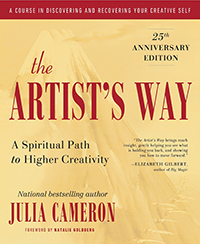
We all have intuitive capability. We can all connect to the unseen world and receive guidance, inspiration, ideas, and all that even if we’re in a very boring industry or job. If we can trust in our guidance and connect to that, believe in our intuition, then so much is possible.
I just finished reading a book called Hiring the Heavens by Jean Slatter; I think that’s her last name. It’s a short, 60–90-minute read, but it is all about that idea of enlisting divine assistance with whatever you’re trying to solve or create.
It doesn’t have to be a song that you’re writing or a movie that you’re writing the screenplay for or whatever. It could be figuring out how to best do your taxes. It’s like, if you have a committee of angelic specialists at your disposal to help you with your lead generation, with your tax minimization, or whatever strategy you’re working on, it can be hugely beneficial.
We all call it different things. That’s sometimes where the blocks are is we move into places of judgment with what other people are calling that. Some people call it the unlimited field of all possibilities. Some people call it the unknown. Some people call it God. Some people call it nature. It’s very individual whatever your spiritual practice is. Whatever it may be, even if it’s taking a walk in nature, you’re tapping into something beyond yourself.
I’ve done that many times where if I feel that I need to kind of refresh myself or boost my energy, I’ll take a walk in nature, listen to the ocean, or listen to the birds. For me, that’s probably one of the blueprints of how music was created although we cannot prove this.
I think one of the biggest blueprints of creation was to emulate nature and also to be a bridge to exactly what we’re talking about, to be a bridge to move into more spiritual or expansive states. When we’re finding that music that works for us, when we’re feeling that expansive state, we’re doing it by second nature. That’s when you get the pen out and start writing. Your next book comes through or your next idea, because you’re not thinking.
Talking about what would be the best starting point for our listener or viewer in terms of your music and your creations, your book as well, where should they start? Is there a particular track, album that you would recommend, a particular article that you’ve written or something like that? Then of course, where do they find more of your website, social channels, and all that?
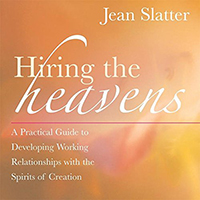
I’ll give you a couple of recommendations. My book is called The Secret Language of the Heart which delves a lot deeper into this. It has over 50 studies in it, but it also has beautiful experiential processes to create heart and brain coherence, and through different challenges as well in terms of providing musical prescriptions for different areas that might be helpful to you, your family, and your loved ones.
Three albums that I would suggest. One is called The Heart Codes. The Heart Codes actually composed at A444. I composed it with the intention of moving back into each one of our own unique vibrations. Each one of us has a heartbeat and a breath, but yours is different from anybody else’s.
The Heart Codes connect you more in the energy of finding that vibration, your own unique vibration, just by listening to it. I place my hands on my heart a lot when I listen to it. I have a breathing process that’s in my book called The Heart Song Breathing Process. That’s great to do with that.
Then, I have another CD series called Ignite the Heart. Stephan, you’ve probably heard that if you’re doing any of Dr. Joe’s breathing techniques. It’s much more up. It’s more epic. It’s more geared towards creating creative, sparking energy, so I call that Your Courageous Heart.
We tend to think of our hearts very black and white. It’s either soft and mushy or not. We have that feeling of compassion and kindness, but we also have this epic heart of courage, power, and passion. That will tap you into that energy more.
If you need a boost in your day, also you want to feel the drums, you want more chanting and more shamanic vibration in that as well, it’s called Ignite the Heart 1 and 2.
Then, in my Ambiology series, there are six different albums. It’s really great for relaxation, meditation. As I said, Ambiology 6 which is called Genesis is great for sleep at night.
Those are the three things I would suggest. Plug a piece of music in three times of your day. Just like you create a meal plan for yourself for breakfast, lunch, and dinner, plug a piece of music in the beginning of your day, plug one in for lunch to revitalize your energy, and plug one in at the end of your day to bridge your busy day into restful nights. Just keep asking yourself, where am I now? Where do I want to go? What piece of music is going to take me there? And you’re on your way.
If we can trust in our guidance and connect to that, believe in our intuition, then so much is possible.
Wow, what great advice. I’m going to do that, create a musical meal plan. Bookmarking your day with great music to help you to get back in tune and in touch. Beautiful.
Absolutely. My website is barrygoldsteinmusic.com. It’s easy to find me. I hope to see you again soon, Stephan.
Yes. Always love talking with you.
Listeners, take Barry’s advice to heart and come up with something musical to start your day with and to end it so that you can start it with energy, with enthusiasm, with intention, and heart, and then you can end it with something that grounds you and brings you back to center for a nighttime sleep.
I will say one other thing. I’m going to give your listeners a challenge to do that for 30 days because whatever patterns that you have that might have a negative impact in your life, whether it’s sleeping challenges or anxiety, it’s taken quite a bit of time to get to this place.
It’s just like a piano. When you tune a piano, you have to play it afterwards to keep it in tune or else it’s going to go back out of tune again. The 30 days of creating that program gives you some momentum and it’s like tuning that piano. It’s keeping you in tuned to that new energy that you’re looking to create.
Thank you so much, Barry. Great advice. All right. There you have the challenge from Barry and from me, so go out there and do it. We’ll catch you in the next episode. Have a great rest of your week.
Thanks, Stephan.
Important Links
- Barry Goldstein
- Facebook – Barry Goldstein
- Instagram – Barry Goldstein
- Twitter – Barry Goldstein
- LinkedIn – Barry Goldstein
- YouTube – Barry Goldstein
- Ambiliology 6: Genesis
- Ignite the Heart
- Om-Shalom-Home
- The Heart Codes
- Hiring the Heavens
- The Artist’s Way
- The Secret Language of the Heart
- Dr. Donese Worden – previous episode
- Paul Selig – previous episode
- Will Henshall – previous episode
Checklist of Actionable Takeaways










 About Barry Goldstein
About Barry Goldstein
What do Les Paul, Shirley MacLaine, Dr. Daniel Amen, And Dr. Joe Dispenza have in common? Music produced or composed by Barry Goldstein!
His Grammy award-winning productions and innovative product development have charted on Billboard, been featured in film, T.V., and # 1 PBS specials.
His book “The Secret Language of the Heart” provides groundbreaking research, experiential processes and musical programs for transforming your life!
LOVED THIS EPISODE
Please consider leaving me a review with Apple, Google or Spotify! It'll help folks discover this show and hopefully we can change more lives!
Rate and Review







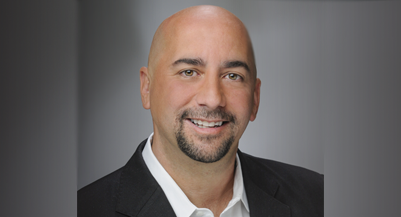
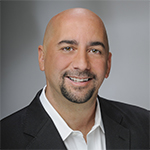 About Barry Goldstein
About Barry Goldstein